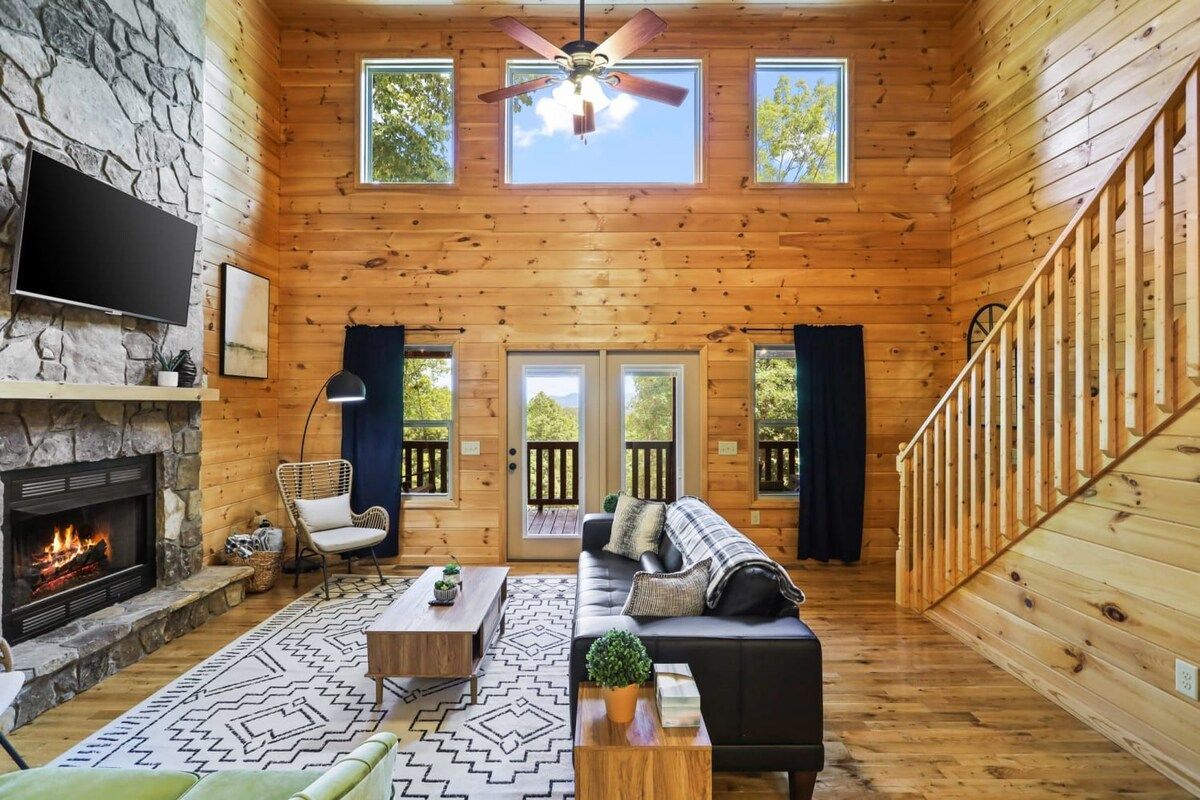How to Start a Vacation Rental Business
How to Start a Vacation Rental Business: A Step-by-Step Guide

Continuing the theme from our "How to Start a Cabin Rental Business" guide, starting a vacation rental business is an exciting way to combine real estate investment with the growing demand for unique travel accommodations. With platforms like Airbnb, Vrbo, and Booking.com making it easier than ever to rent properties to short-term guests, entrepreneurs have a great opportunity to create a profitable business.
However, success in the vacation rental industry requires more than just listing a property online. It involves careful planning, understanding the market, and delivering an exceptional guest experience. In this guide, we’ll walk you through the key steps to launching and growing a vacation rental business.
Why Invest in a Vacation Rental?
Investing in vacation rentals is a smart move for both short-term income and long-term financial gains. Vacation rentals typically generate higher nightly rates than traditional long-term rentals, especially in popular tourist destinations.
Here are some key reasons why vacation rentals are a solid investment:
- High Income Potential: In 2023, the average daily rate for short-term rentals was just over $300, reflecting strong revenue opportunities (Henderson). The average monthly income for U.S. Airbnb hosts stands at $924, though properties in prime locations can earn even more (Bitton).
- Property Appreciation: Vacation rentals in high-demand tourist destinations tend to appreciate faster than other real estate. Making strategic upgrades like modernizing interiors or adding a hot tub can further increase the property’s value.
- Tax Advantages: Owners can deduct expenses like mortgage interest, property taxes, management fees, insurance, and depreciation. These deductions can significantly reduce taxable rental income and improve profitability (Rohde).
- Resilience During Economic Downturns: Vacation rentals in domestic leisure destinations have historically performed well, even during economic slowdowns. Travelers often seek more affordable, close-to-home vacation options during tough times (Bitton).
In addition to financial benefits, vacation rentals offer personal enjoyment. You can use the property during off-peak seasons, and it helps diversify your investment portfolio
1. Identify, Research, and Understand Your Market
When starting a vacation rental business, it’s crucial to first identify your target market and then conduct thorough research to understand its unique characteristics. While the overall industry is growing, the key to success lies in how well you navigate the specific conditions and regulations in your chosen location. Knowing what makes your market unique will help you make informed decisions and position your property for maximum profitability.
What to Research:
- Local Regulations and Taxes: Many cities and municipalities have specific rules regarding short-term rentals. Research local zoning laws, licensing requirements, and any restrictions that could impact your ability to rent. Be aware of occupancy taxes or other fees that apply to vacation rentals. Ensuring compliance with these laws is essential to avoid penalties or legal issues. Here are some search terms that might help you find the information you need:
- “Short-term rental regulations [your city] 2024”
- “Occupancy tax vacation rentals [your city]”
- “Vacation rental permit requirements [your city]”
- Market Demand: Look into the demand for vacation rentals in your area. Is the location popular with tourists year-round, or is it seasonal? Assess local tourism data and occupancy trends to determine the best times for high occupancy and how to price accordingly. Tools like AirDNA or Mashvisor can help you track demand, occupancy rates, and competition in your area. Here are some example search terms you can use:
- “Peak tourist season for rentals [your city]”
- “Vacation rental market demand [your city]”
- Tourism statistics [your city] 2024”
- Seasonality: Understanding the seasonality of your market is key. Some destinations have peak seasons where you can charge higher rates, while others may experience slow periods. Research how demand fluctuates throughout the year and plan your pricing strategy accordingly. This will help you maximize bookings and profits during high-demand times and manage the slower periods. Here are some search terms that might help you find the information you need:
- “Vacation rental seasonality [your city]”
- “Best time to visit [your city] tourism data”
- “Ski season rental demand [if applicable]”
- Local Competition: Study your competitors to identify what they offer and how you can stand out. Do this by searching for terms you might want to show up for on Google and booking platforms like Airbnb, Vrbo, and Booking.com. Are there similar vacation rentals nearby? What are their nightly rates and amenities? Analyzing local competition will help you understand the pricing landscape and find ways to differentiate your property to attract more guests.
- Pricing Trends: Research the average nightly rates in your area, and pay attention to seasonal fluctuations. Do this by searching for terms you might want to show up for on Google and booking platforms like Airbnb, Vrbo, and Booking.com. Dynamic pricing tools can help you adjust rates based on demand, ensuring your property stays competitive while maximizing profits during peak seasons.
- Target Audience: Identify who your primary guests will be. Are they families, couples, business travelers, or solo adventurers? Tailoring your property to the needs and preferences of your target audience can boost bookings. Check guest reviews of similar properties to gain insights into what travelers in your area value most. Here are some search terms that might help you find the information you need:
- “Tourism report [your city or region] [year]”
- “Visitor demographics report [your city or region]”
- “Government tourism data accommodations [your city or region]”
By identifying, researching, and fully understanding your market, you can strategically position your vacation rental business for long-term success. This will help ensure you meet local regulations, price competitively, and attract the right guests year-round.
2. Choose Your Business Model
When starting a vacation rental business, selecting the right business model is key. There are two primary paths: buying property or leveraging rental arbitrage.
Buying Property
If you have the capital, buying property offers the most control. You can use the property yourself during off-peak seasons and have more control over upgrades. Properties near beaches, mountains, or city centers are often the most profitable.
Before purchasing, research local short-term rental regulations and assess the potential return on investment. Consider factors like average nightly rates and occupancy in the area.
Rental Arbitrage
If purchasing property isn’t feasible, rental arbitrage is a great alternative. This model involves renting a property long-term and re-renting it short-term with the landlord’s permission.
Rental arbitrage requires less upfront capital, but it demands strong negotiation skills and an understanding of local rental laws. It can also serve as a strategic stepping stone. Many use rental arbitrage to generate the income needed to eventually purchase a rental property of their own.
Additionally, it allows you to “test out” a location before making a larger investment, helping you determine if the area has consistent demand and aligns with your long-term goals. This model provides flexibility, enabling you to explore different markets without the financial commitment of buying a property outright.
However, keep in mind that rental arbitrage can be a transient arrangement. Homeowners who see the income generated from their property may decide to cut the person renting the home out of the setup, opting to manage the rental themselves.
Both models come with their own risks and rewards. Property ownership yields higher profits in the long term, but rental arbitrage allows for lower financial risk and faster entry into the market.
3. Create a Comprehensive Business Plan
A solid business plan is essential for your vacation rental business. It will guide your strategy, help you manage finances effectively, and provide a clear roadmap for growth. A comprehensive plan ensures that you are prepared for the financial, operational, and marketing aspects of running a successful vacation rental business.
Financial Plan (For Making Sure Your Vacation Rental Is Profitable)
Start by calculating the costs involved in acquiring, furnishing, and maintaining the property. This should include fixed expenses like mortgage payments, utilities, property taxes, and repair costs. It’s equally important to project your revenue, taking into account nightly rates and expected occupancy, while factoring in the seasonal demand fluctuations that will affect your income. Having a financial buffer for slow seasons and unexpected repairs is crucial to ensuring the long-term viability of your business.
Operations Plan (For Making Sure Your Rental Gets Great Reviews)
Next, decide how you will manage the property. Will you handle tasks like cleaning, guest communication, and maintenance yourself, or will you outsource these to a property management company? Consider leveraging property management software to automate tasks such as bookings, pricing adjustments, and guest communication, making it easier to manage your rental efficiently and freeing up your time to focus on other aspects of your business.
Marketing Plan (For Getting Your Rental In Front of People)
Your marketing plan should focus on strategies to attract potential guests. Listing your property on platforms like Airbnb, Vrbo, and Booking.com will help you reach a broad audience. However, to maximize your bookings, consider developing your own website and leveraging social media to drive direct bookings. Highlighting your property’s unique features, amenities, and the local attractions will help differentiate it from the competition, increasing its appeal to travelers.
By having a clear and comprehensive business plan, you'll have a strong foundation to launch your vacation rental business successfully. A well-thought-out plan will not only guide your day-to-day operations but also position you for long-term growth and profitability.
4. Find the Right Home Through Market Analysis
Using platforms like AirDNA or Mashvisor, start by evaluating the revenue potential of individual properties in your chosen market. These tools offer insights into rental income, occupancy rates, and seasonal demand. By analyzing this data, you can narrow your search to homes that meet your financial goals and have the highest likelihood of success.
- Location: Focus on tourist hotspots, growing suburbs, or areas with year-round demand.
- Property Features: Larger homes with multiple bedrooms or unique features, such as pools or scenic views, often perform well.
- Revenue Data: Use tools to assess historical and projected rental income for properties you're considering.
Additionally, examine the types of properties that are consistently booked and generating high income. Taking note of trends will guide your investment, ensuring you target the right kind of property that appeals to the local market.
By doing proper market analysis for your potential property, you can ensure you're investing in a home that has both immediate and long-term potential. Over time, you may want to add more amenities to your property to increase its appeal. Competitive research on nearby properties can help you plan these upgrades strategically, focusing on features that resonate with guests in your area.
5. Prepare Your Vacation Property for Guests
In addition to actually buying your vacation renal property (a process we've left out because it's outside the scope of this article), it's essential to prepare the property for guests. Proper preparation ensures you make a great first impression and secure consistent bookings. Here are the key areas to focus on:
Furnishing and Amenities
The right furnishings and amenities can elevate your property and make it more attractive to guests. Quality furniture, comfortable bedding, and essential appliances are a must, but don’t overlook guest-centric touches like high-speed WiFi, smart TVs, and washer/dryer setups.
- Essential Amenities: Guests expect certain basics such as WiFi, air conditioning, heating, and entertainment options like smart TVs.
- Guest-Focused Touches: Small additions like coffee makers, local guidebooks, and thoughtful decor can enhance the guest experience and lead to positive reviews.
Design for Durability and Comfort
Design your space with both aesthetics and practicality in mind. Durable materials that can withstand frequent guest use are ideal for vacation rentals. Choose fabrics and furnishings that are easy to clean and maintain, while still providing a cozy and inviting atmosphere.
- Durability: Select furnishings that are easy to maintain and can handle wear and tear.
- Comfort: Invest in quality mattresses, plush bedding, and comfortable seating areas to ensure guests feel at home.

Study Your Competitor's Listings
One of the best ways to prepare your property is by studying what successful competitors are doing. Look at nearby listings that are performing well and take notes on how they present their properties. This will help you identify opportunities to improve your own listing and stand out.
Things to Pay Attention to in Competitor Listings:
- First Image: What image do they use as the primary photo? Does it highlight a key feature (e.g., a view, a cozy living space, or an outdoor area)?
- Title and Description: How do they describe the property? What keywords or phrases do they use to appeal to guests?
- Amenities Offered: Do they mention specific amenities on their listing that appeal to their target audience, such as hot tubs, outdoor spaces, or pet-friendly options?
- Reviews: What are guests highlighting as the best aspects of their stay? How are the hosts responding to feedback?
- Pricing and Promotions: Do they offer seasonal promotions or discounts? How do they price their property compared to others in the area?
Taking detailed notes on these items can help you generate ideas for improving your listing over time. As your business grows, you can continue refining your approach based on what you learn from competitors.
As your business grows and you have more funds to reinvest, you can add more amenities to your property over time. Studying competitor listings will help you determine what upgrades will attract more guests and improve your property's appeal.
6. Set the Right Price
Pricing your vacation rental correctly is crucial for balancing occupancy with revenue. Setting the right price requires careful research, strategic thinking, and ongoing adjustments to reflect changes in market conditions.
Research Comparable Properties
Start by looking at similar properties in your area to get a baseline for pricing. Use tools like AirDNA or Mashvisor to analyze pricing trends, occupancy rates, and average nightly rates. Be sure to compare properties that are similar in size, amenities, and location to your own.
Key Factors to Compare:
- Property size and number of bedrooms/bathrooms.
- Proximity to local attractions or tourist areas.
- Quality of furnishings and available amenities.
Consider Seasonal Demand
The vacation rental market is highly seasonal, so pricing should reflect fluctuations in demand. During peak seasons, like summer for beach destinations or winter for ski towns, you can increase your nightly rate. In off-peak seasons, consider lowering your rates to attract more bookings.
- Peak Season Pricing: Adjust prices upward when demand is high (e.g., holidays, local events).
- Off-Peak Adjustments: Lower prices during slow seasons to maintain occupancy.
Consider Dynamic Pricing Tools
Dynamic pricing tools automatically adjust your rates based on factors like demand, seasonality, local events, and competitor pricing. This helps ensure that your property remains competitive year-round while maximizing your revenue.
Popular Tools: Consider platforms like Beyond Pricing, PriceLabs, or Wheelhouse to automate your pricing strategy.
Factor in Additional Costs
When setting your price, don’t forget to account for any additional fees you’ll need to cover. These can include cleaning fees, booking platform fees (like those charged by Airbnb or Vrbo), and local taxes. These costs should be factored into your pricing strategy to ensure profitability.
Additional Costs to Include:
- Cleaning fees.
- Booking platform fees (typically 3-5%).
- Local occupancy or tourism taxes.
By carefully researching and adjusting your pricing, you can ensure that your rental is competitively priced to attract guests while also covering your expenses and generating profit.
7. Market Your Vacation Rental
Once your property is ready and priced competitively, the next step is to market it effectively. Good marketing ensures that your listing reaches the right audience, drives bookings, and keeps your property occupied. With the right strategies, you can increase visibility and secure more reservations.
Create High-Quality Listings on Multiple Platforms
Start by listing your property on major online travel agencies (OTAs) like Airbnb, Vrbo, and Booking.com. These platforms provide access to a large audience of travelers searching for short-term stays. Crafting a compelling listing is key to standing out from the competition.
- High-Quality Photos: Ensure your listing includes professional-grade photos that showcase your property’s best features. Well-lit, high-resolution images are essential in attracting potential guests.
- Optimized Descriptions: Write a clear, concise, and engaging description. Highlight what makes your property unique—whether it’s a stunning view, proximity to attractions, or luxurious amenities.
- Compelling Title: Your title should be attention-grabbing and include keywords that people might search for, such as “beachfront condo,” “cozy mountain cabin,” or “family-friendly getaway.”
Leverage Social Media
In addition to listing your property on booking platforms, use social media to promote it. Platforms like Instagram, Facebook, and Pinterest can be powerful tools to showcase your property, especially if you post visually appealing content.
- Instagram: Share eye-catching photos of your property and use relevant hashtags like #VacationRental or #AirbnbHost to reach potential guests.
- Facebook: Create a page for your vacation rental and post regularly. Engage with followers, run promotions, and share guest reviews to build trust and interest.
- Pinterest: Use Pinterest to post beautiful photos of your property and link them back to your listing. This can help drive traffic and bookings, especially for visual planners.
Develop a Website for Direct Bookings
While booking platforms are excellent for exposure, they also charge fees. To reduce these costs and build a more direct relationship with guests, consider creating your own website for direct bookings. A professional website gives you more control over pricing and marketing while helping build a brand for your vacation rental business.
- Direct Booking Benefits: No platform fees, more control over guest communication, and the ability to offer discounts or special promotions.
- Website Essentials: Include professional photos, detailed descriptions, pricing, a booking calendar, and an easy-to-use reservation system.
Encourage Reviews
Guest reviews are one of the most influential factors when travelers choose a vacation rental. Encourage your guests to leave positive reviews after their stay. Responding to reviews—both good and bad—shows that you care about the guest experience and are committed to improving your property.
- Respond to Feedback: Engage with guests by thanking them for positive reviews and addressing any concerns raised in negative ones.
By marketing your property effectively across multiple platforms and encouraging reviews, you can increase your chances of maintaining steady bookings and building a strong reputation in the vacation rental market.
The Property Management Question
Before we go any further, it’s important to note that managing a vacation rental comes with a variety of responsibilities, from guest communication to cleaning and maintenance. While some property owners choose to handle all of these tasks themselves, others discover that partnering with a vacation rental management company can provide significant benefits. In the following section, we’ll help you evaluate whether hiring a property management company is the right choice for you—and when you should consider getting them involved.
Should You Get a Vacation Rental Management Company?
The decision to hire a property management company depends on your level of involvement, available time, and overall goals for your rental property. Consider these factors when deciding if professional management is right for you:
- Time Commitment: Managing guest bookings, inquiries, cleanings, and repairs can become a full-time job. If you have other commitments or prefer to focus on other ventures, a property management company can relieve you of day-to-day tasks.
- Location: If you don’t live near your vacation rental property, handling tasks like guest check-ins, repairs, and emergencies can be challenging. A local property manager can ensure that everything runs smoothly, even when you're not nearby.
- Professional Expertise: Experienced property managers know the ins and outs of the vacation rental market. They can help optimize pricing, handle difficult guests, and improve your property’s overall performance—often leading to higher revenue.
- Scaling Your Portfolio: Managing one property may be feasible, but as you add more rentals to your portfolio, managing multiple homes becomes increasingly difficult. A management company can help you handle the complexities of scaling, from coordinating bookings across different properties to managing staff.
When Should You Get a Property Management Company Involved?
Timing is key when deciding to bring in a property management company. Here are a few indicators of when you might want to get them involved:
- From the Beginning: If you’re new to the vacation rental business and want to ensure you start off on the right foot, getting a property management company involved from the start can save you from early mistakes. Full-service companies can help with everything, from staging your property and setting up listings to handling guest communications and pricing strategies.
- Once You’ve Established One Property: Many owners manage their first vacation rental themselves but realize they need help once they’re ready to expand. As your property begins to generate revenue and attract more bookings, hiring a management company can help maintain a high standard and reduce your workload.
- When You Start Scaling: As you add more properties to your portfolio, a property management company becomes almost essential. Coordinating cleanings, bookings, and repairs across multiple locations is time-consuming and complicated. A good property manager can ensure that all your properties are well-maintained, booked, and generating the maximum possible return.
By recognizing when a property management company would make a meaningful impact, you can streamline operations and scale your business more efficiently. Full-service vacation rental management companies, like Home Team Vacation Rentals, offer complete management solutions, while other companies provide specific services like listing management or cleaning.
Alright, now let’s get back to the main steps of starting your vacation rental business...
8. Scale and Grow Your Vacation Rental Business
Once you have your first property up and running smoothly, it’s time to think about growth. Expanding your vacation rental portfolio can increase your revenue, but it comes with additional challenges that you’ll need to manage carefully.
Add Properties Strategically
When expanding, think strategically about your next property purchase or rental. Consider investing in different types of properties, such as city apartments, beachfront condos, or mountain cabins, to diversify your offerings. This allows you to appeal to a broader range of guests.
You should also analyze which areas are seeing growth in tourism. By keeping an eye on emerging vacation destinations, you can find properties that are likely to appreciate over time while also generating solid rental income.
Streamline Operations
As your portfolio grows, managing multiple properties can become time-consuming. Consider automating some of your processes, like using property management software to synchronize bookings and handle guest communications. This will help keep things organized and ensure you can maintain high occupancy rates across all your properties.
Outsourcing tasks like cleaning, maintenance, and guest communications becomes even more crucial as you scale. You’ll also want to continue using dynamic pricing to ensure you’re maximizing your revenue year-round.
Maintain a Personal Touch
Even as you scale, don’t lose sight of the importance of guest satisfaction. Providing personalized touches, like a welcome basket or local recommendations, can help maintain a high level of guest satisfaction and increase the chances of positive reviews and repeat bookings.
Final Thoughts
Starting and growing a vacation rental business requires planning, hard work, and a strategic approach. Whether you begin by purchasing a property or leveraging rental arbitrage, having a solid business model and understanding your market are key to your success.
As you continue to scale, remember that using the right tools, conducting thorough research, and considering professional help from a property management company can make a significant difference in both the guest experience and your bottom line.
Why Partner with Home Team Vacation Rentals?
When it comes to growing and managing your vacation rental portfolio, working with a full-service property management company like Home Team Vacation Rentals can help you maximize your cash flow and minimize the hassle. With our luxury vacation rental management services, we handle everything—from marketing and guest communication to cleaning and maintenance—so you can focus on enjoying the benefits of your investment.
Our team provides:
- Full-service luxury property management: We take care of everything to ensure your property is well-managed and generating maximum revenue.
- Maximized ROI: Through strategic pricing, targeted marketing, and high-quality service, we work to optimize your rental income.
- No booking fees for guests: By booking directly with us, guests avoid extra charges, ensuring you get more bookings and happier guests.
- VIP service: We treat your property as if it were our own, with meticulous attention to detail in everything from housekeeping to guest support.
If you’re ready to take your vacation rental business to the next level, Home Team Vacation Rentals offers the expertise and services to make it happen. Partner with us to unlock the full potential of your property and experience hassle-free rental management. Contact us today to get started!
Works Cited
Bitton, David. "Vacation Rental Statistics: Will The Market Thrive At the End of 2024?" DoorLoop, 23 June 2024, www.doorloop.com/blog/vacation-rental-statistics.
Henderson, Rebecca. "Short-term Rental Statistics: 2024 Report." USA Today, 11 June 2024, www.usatoday.com/money/homefront/moving/short-term-rental-statistics/.
Internal Revenue Service. "Topic No. 415, Renting Residential and Vacation Property." IRS.gov, https://www.irs.gov/taxtopics/tc415. Accessed 31 Aug. 2024.
Rohde, Jeff. "14 Common Short-Term Rental Tax Deductions (2024 Guide)." Stessa, www.stessa.com/blog/short-term-rental-tax-deductions/. Accessed 31 Aug. 2024.
Statista Market Insights. "Vacation Rentals - United States." Statista, July 2024.
Categories: Property Management, Investor



